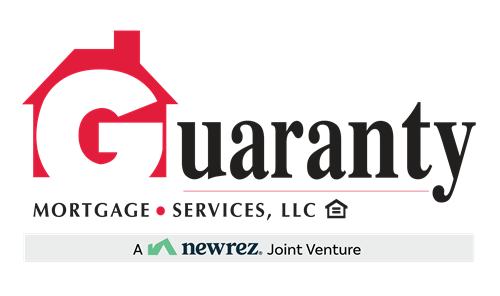
Understanding and Debunking VA Loan Myths
There are many misunderstandings about VA loans. Some borrowers fail to take advantage of these beneficial programs due to misconceptions surrounding eligibility, costs and requirements. Our goal is to provide precise information, clarify misunderstandings, and offer authoritative insights that shed light on the real advantages of VA loans.
Key Benefits of VA Loans
- No Down Payment: Qualified borrowers typically do not need to provide a down payment.
- No Private Mortgage Insurance (PMI): PMI is not required, which can save borrowers significant monthly costs.
- Competitive Interest Rates: VA-backed loans often feature interest rates below those found in conventional mortgage packages.
VA Loan Eligibility Requirements
Eligibility is frequently misunderstood. Being aware of the specific requirements is crucial for streamlining the approval process.
- Service Timeframes: Active-duty service members, Veterans and certain National Guard or Reserve members may qualify based on length of service.
- Honorable Discharge: Discharge status often affects entitlement. An honorable discharge is a key requirement in many cases.
- Certificate of Eligibility (COE): Applicants must secure a COE through the VA, which confirms entitlement. Your lender may be able to assist you in securing your COE.
- Surviving Spouses: Some surviving spouses of deceased Veterans may qualify if they meet specific conditions set forth by the VA.
Debunking VA Loan Myths
1. “VA Loans Are Burdensome to Sellers”
Some sellers might avoid working with VA loan buyers due to perceptions of extra delays or red tape. The truth is that VA loans can close on schedules comparable to conventional mortgages. Modern processes and technology reduce holdups, allowing timely and efficient transactions. Notably, working with a lender with experience in VA loans may minimize delays.
2. “Veterans Need Perfect Credit”
While a positive credit profile helps, VA loans often accept credit scores that may be lower than those required for conventional financing. The VA program strives to help as many qualified Veterans as possible; however, lenders do apply their own requirements, so researching and comparing lenders remains essential.
3. “VA Loans Require a Down Payment”
VA loans commonly offer a zero-down option for qualified borrowers. Although putting money down can reduce monthly payments and/or funding fees, a down payment is often not be required if a Veteran or Military member has full entitlement. In some cases, zero down is still possible with only partial entitlement remaining.
4. “VA Appraisals Always Come in Low”
VA appraisals aim to confirm fair market value and ensure the home meets property requirements. Appraisal outcomes can vary, but the VA does not systematically assign lower values than other appraisal channels.
5. “Closing Costs Are Nonexistent”
While there is no private mortgage insurance and no mandatory down payment, certain fees and closing costs are still part of the process. It is important to budget for these potential expenses, which can include a VA funding fee and other customary closing costs.
6. “There Is Only One Chance to Use VA Benefits”
Borrowers might be under the impression that a VA loan benefit can only be used once. In reality, entitlement can be restored if a previous loan was paid in full and if the Veteran sells the property secured by that loan. Entitlement may also be restored if a qualified Veteran assumes the original VA loan. In some cases, multiple VA loans can coexist if certain requirements are met.
7. “VA Loans Are More Expensive in the Long Run”
It is not accurate to say VA loans always cost more over time. While there is a funding fee, it can be financed into the loan. Also, there is typically no monthly mortgage insurance, and the lower interest rates can offset the fee within a reasonable time frame.
8. “Only Single-Family Homes Qualify”
Although VA loans are commonly used for single-family homes, they also allow the purchase of certain condominiums, manufactured homes, townhomes, or multi-unit properties (up to four units). Each property type must meet VA standards and lender requirements.
9. “Surviving Spouses Do Not Qualify”
If specific conditions are met, surviving spouses may qualify for VA loan benefits, including exemption from funding fees in certain instances.
10. “VA Loans Are Impractical for Refinancing*”
Borrowers can use multiple refinancing options, such as the VA Interest Rate Reduction Refinance Loan (IRRRL) or a Cash-Out Refinance, which can streamline processes, reduce monthly payments, or provide cash for home improvements or other needs.
11. “All Lenders Follow the Same Guidelines”
While the VA sets overarching rules, individual lenders can impose stricter standards. Shopping around for the right lender enables borrowers to find more favorable terms, especially for credit score requirements or interest rates.
12. “VA Loans Lack Flexibility for Repairs or Improvements”
Depending on eligibility, borrowers can explore rehab loans or cash-out refinance options to finance certain renovations. VA guidelines can permit specific types of repairs and upgrades, allowing homeowners to maintain and improve their property.
13. “Renting Out a VA-Financed Property Is Prohibited”
VA loans are intended for primary residences. Renting out the property may be possible after meeting primary residence requirements, though borrowers should follow all regulations related to occupancy and ensure they uphold lender obligations.
Funding Fee and Other Costs
A distinguishing aspect of VA loans is the funding fee, which helps fund the program and reduce taxpayer burden. This fee varies, with first-time users often paying a lower percentage than those who use the benefit multiple times. In some situations, such as borrowers with service-related disabilities, the funding fee may be waived.
Interest Rates and Loan Limits
Contrary to the myth that VA rates are always higher, VA-backed mortgages can offer highly competitive rates. Commonly, VA rates are lower than those of Conventional or Jumbo loans.
Moreover, the VA does not set limits on how much a VA applicant can borrow, but they sometimes limit how much loan they’re willing to guarantee.
- If a VA applicant has full entitlement, the VA will guarantee any loan amount for 100% financing that the Veteran qualifies for and that the lender is willing to offer.
- If the VA applicant is using some of their entitlement, the VA may limit the maximum loan amount they’re willing to guarantee. This will be based on the amount of entitlement the applicant still has available, among other factors.
Ensuring a Smooth Application Process
- Obtain Your COE Early: Securing a Certificate of Eligibility early helps define what is feasible and what is not.
- Maintain Strong Finances: Keep credit use reasonable, avoid major purchases before closing, and maintain stable employment.
- Work with VA-Savvy Professionals: Lenders, real estate agents, and appraisers experienced with VA guidelines can ensure a more streamlined process. We recommend staying engaged and responsive throughout each stage for a smooth experience.
Conclusion
We encourage qualified borrowers to explore VA loan opportunities and avoid dismissing this valuable benefit based on outdated information. Equipped with the correct facts, service members, Veterans, and surviving spouses can potentially secure more affordable pathways to homeownership, complete with favorable terms. Thorough research, professional guidance, and an informed approach are instrumental in dispelling myths and maximizing the advantages of VA-backed mortgages.
*By refinancing an existing loan, the total finance charges may be higher over the life of the loan. We may transfer the escrow account balance from the current loan to the new loan. If the current escrow amount is insufficient due to changes in taxes or insurance, we may require additional money when closing on the new loan.
